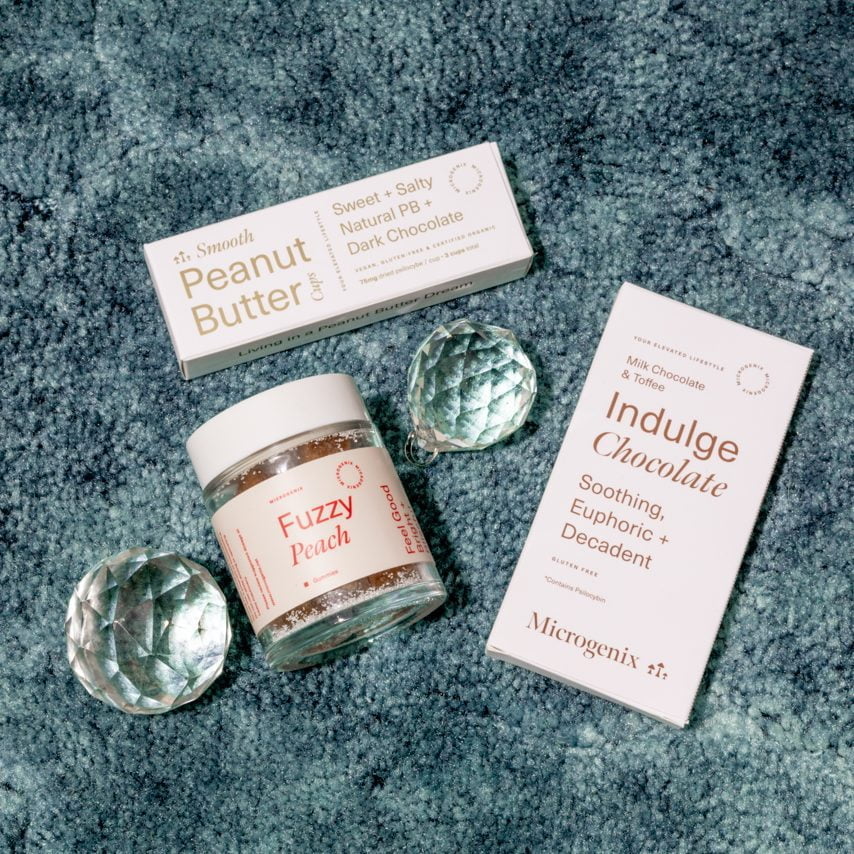Blog
The Value of Sleep
The unquestionable value of a good night’s rest is unlike any other human demand, playing a vital role in both psychological wellness and general human health. With sleep deprivation becoming a prevalent trait of many individuals in recent years, we are often left searching for new ways to obtain the rest we need in order to function optimally.
The list of reasons relating to the importance of sleep is extensive, including brain function, immune function, disease prevention, and more. Long-term sleep deprivation can result in a number of unwanted health conditions, including psychological effects that can hinder one’s overall quality of life when not taken care of.
Now don’t panic just yet my fellow insomniacs, over 25% of individuals in Canada are self-admittedly sleep strugglers as well. With sleep deprivation becoming more prominent in modern times, we may find certain hints in our general lifestyles as to what is preventing us from achieving that holy grail of an 8 hour shut-eye.
Common things that may hinder a proper sleep:
- Stress
- Anxiety
- Work obligations
- Improper sleep conditions
- Sleep disorders (i.e Insomnia, Sleep Apnea, Restless Legs Syndrome, etc.)
- Depression
- Excess caffeine intake
- Irregular sleep schedule
Cracking Down on Sleep Deprivation
Sleep deprivation symptoms can vary by the extent of someone’s sleeping struggles, but often show face in certain ways that directly affect how we move and think. Fatigue, an inability to concentrate, poor memory, heightened anxiety and/or depression are only some tell-tale signs that you may be sleep deprived.
For some, sleep deprivation is short-term and can last as little as 1-2 nights. As for others, sleep deprivation can be chronic and last for weeks and sometimes even months at a time. Masking the symptoms of poor sleep with coffee, energy drinks, or alcohol can actually heighten the intensity of the issue overtime. Addressing the root of the problem is the single most effective way to combat sleeping issues and to fend them off long-term.
If you associate yourself with any of the things on the sleep hindrance list above, something positive to note is that even long-held habits are breakable. If your body has taken on the habit of sleeping minimally, there are a few proven ways to improve sleep quality while getting to the root of the issue. It only takes a little work.
1. Sleep Hygiene
Sleep hygiene isn’t about a before bed shower or perfectly clean sheets, but it is more about our bedtime habits that make an impact on the quality of rest.
Sleeping environment is a major part of sleep hygiene, meaning that your room remains dark, quiet, and at an ideal sleeping temperature for optimal sleep.
Small things like a computer light can disrupt a deep sleep. A purely dark space sends critical signals to your brain that it is time to rest.
A phone notification in the night can be doing more harm than we realize, which is why prioritizing as much silence as possible is key for proper sleep. Even if the sound does not wake you, the brain still registers sound throughout the night causing detrimental interruptions in our overall sleep rhythm.
Don’t forget about the importance of temperature either. Assisting your body’s natural cooling process by sleeping in a colder room can make a relevant impact on how you sleep since lower temperatures aid in melatonin release.
Ideal sleep hygiene is also about addressing our daytime habits that negatively impact our quality of sleep. Avoiding daytime naps, limiting caffeine intake, as well as limiting screen time before bed can create positive changes in our sleeping habits.
In the case a daytime nap is required, try a 20 minute power nap and don’t sleep for more than 45 minutes to an hour maximum.
All caffeine consumption should be stopped 6-8 hours before bedtime to ensure you aren’t trying to sleep while still stimulated.
Screen time should be kept to a minimum for 1-2 hours before sleeping. The blue light of excess screen time can disrupt melatonin production, so trading the social scrolling for a good book will definitely make a difference in your sleep if you can find the willpower to do so.
Lastly, optimal sleep hygiene loves physical activity. Engaging in regular physical activity can promote sleep quality by allowing the body to fall asleep faster, and stay asleep longer. Try adding a 45 minute walk to your daily routine if you are struggling to achieve a deep, sound sleep.
2. Microdosing
When it comes to self-improvement, microdosing has shown promising capabilities in a range of different areas — sleep included. With minimal studies on psilocybin associated with the subject of sleep, we can instead take a look at the general proven effects of microdosing in a daily lifestyle. Positive lifestyle changes due to the intake of psilocybin may potentially improve sleep quality in the long run.
When we consider the 3 leading causes of insomnia – anxiety, stress, and depression – we know that microdosing psilocybin has proven itself time and time again to be a mood-boosting mental health remedy, effective in combating these common symptoms of mental health disorders.
In a large study published in the Scientific Reports journal, researchers found that microdosers showed great reductions in stress, anxiety, and depression levels, in comparison to non-microdosers. With a steady rise of microdosing individuals reporting improvements in their mental health and overall well-being, we can speculate that the strengths of microdosing can help combat certain traits pertaining to poor sleep.
Microdosing is also said to improve productivity levels throughout the day by enhancing cognitive function and improving our attention span. Being more productive in the daytime may allow you to engage in more physical and cognitive tasks, allowing you to use up your alertness in the daytime opposed to storing it. Thus attributing to sleep hygiene and bettering your sleep.
It is said that serotonin is needed for the proper production of melatonin, whereas low serotonin levels are commonly found in those with depression and can often result in insomnia. Because psilocybin primarily stimulates the serotonin receptors, a dose of psilocybin in the daytime may help boost serotonin levels and promote a higher quality of sleep in the evening. Because psilocybin in specific acts as a CNS stimulant, it’s best to take your dose early in the morning before taking on your day to avoid heightened stimulation in the evening.
3. Circadian Rhythm
A circadian rhythm is an internal process that regulates the body’s sleep-wake cycle, and is a very important figure in maintaining optimal sleep quality. If you find yourself to be someone that is always tired or low-energy in the daytime but struggles to fall asleep in the evening, it may be a sign that your circadian rhythm is out of alignment.
Our body hosts a 24 hour cycle known as our “biological clock,” influenced by our environment and primarily the cycle of day and night. While daylight allows us to become energized and awake, the darkness of nighttime signals melatonin to be produced.
When our internal clocks get thrown off schedule, it can do more than just affect our sleep. Our internal clocks also control various bodily functions, with professionals linking a poor circadian rhythm to other health issues such as diabetes, depression, and heart disease.
A shifty sleep schedule is one of the most common reasons for a thrown off clock, considering most people struggle to go to sleep and wake up at the same time each day. Exposure to artificial light such as a phone screen late at night can also negatively impact your sleep by disrupting the body’s natural circadian light rhythm.
A circadian rhythm reset is a good idea for those struggling to maintain proper sleep, as maintaining a healthy rhythm can assist individuals in achieving a better overall health status. Sticking to a consistent sleep schedule is the most effective way to reset, and should be made a priority if insomnia and daytime sleepiness is a present factor in your daily life.
If your work life prohibits you from maintaining a perfectly consistent sleep schedule, there are a few other ways to help regulate your circadian rhythm and maintain a better clock. Things such as avoiding vigorous exercise or large meals for at least 2 hours prior to sleep, reducing exposure to artificial light in the evening such as computer or phone screens, and engaging in relaxing activities such as reading or meditating before bed are all good ways to get the clock back in tune.
With emphasis on reducing artificial light in the evening, we can also emphasize the importance of increasing light exposure in the daytime. Exposing yourself to bright light (preferably sunlight) first thing in the morning helps to reset rhythm by signaling the body to be awake. This can improve energy levels throughout the day and increase alertness; synchronizing circadian rhythm overtime.
Fortunately, the body seems to adjust to new circadian rhythms rather quickly! Figuring out your chronotype (aka whether you are a night owl or early bird) and sticking to a designated sleep routine that best works for your routine, will give your circadian rhythm the consistency it needs to stay on track.
Chronotypes are largely reliant on genetics, therefore not everyone will align with the same sleep-wake rhythm. Working with your specific chronotype is key, and there are multiple online quizzes and sleep apps that may offer some insight as to which chronotype you are, and how you might align your routine with it to best suit your personal needs.
Conclusion
Although poor sleep quality is definitely something to monitor, it is incredibly common for a reason. In life there will always be things out of our control, whether it be life stress, shift work, or mental health battles… The desire to change it is a huge step.
The more we stress ourselves out about lacking sleep, the less likely we are to fix it. Move at your own pace, and start small if needed! One less cup of coffee or 10 extra minutes of walking a day can make all the difference in telling your body that sleep is your new priority.
The human body is a complex device, and sometimes all we have to do is just listen a bit closer so it can tell us what it needs.
What’s your favorite sleep routine?
olive@microgenix.net wants to know!
Yours truly,
Olive
**For those suffering chronic sleep disorders, a visit to the doctor or a designated sleep clinic may offer the best solutions necessary for conditions requiring professional care.**




